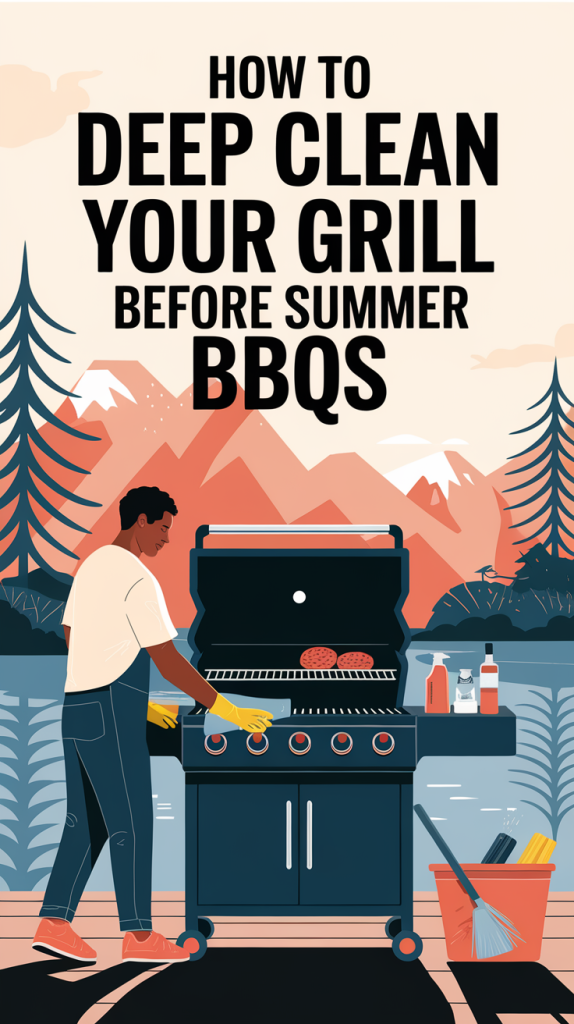How to Deep Clean Your Grill Before Summer BBQs in 2025
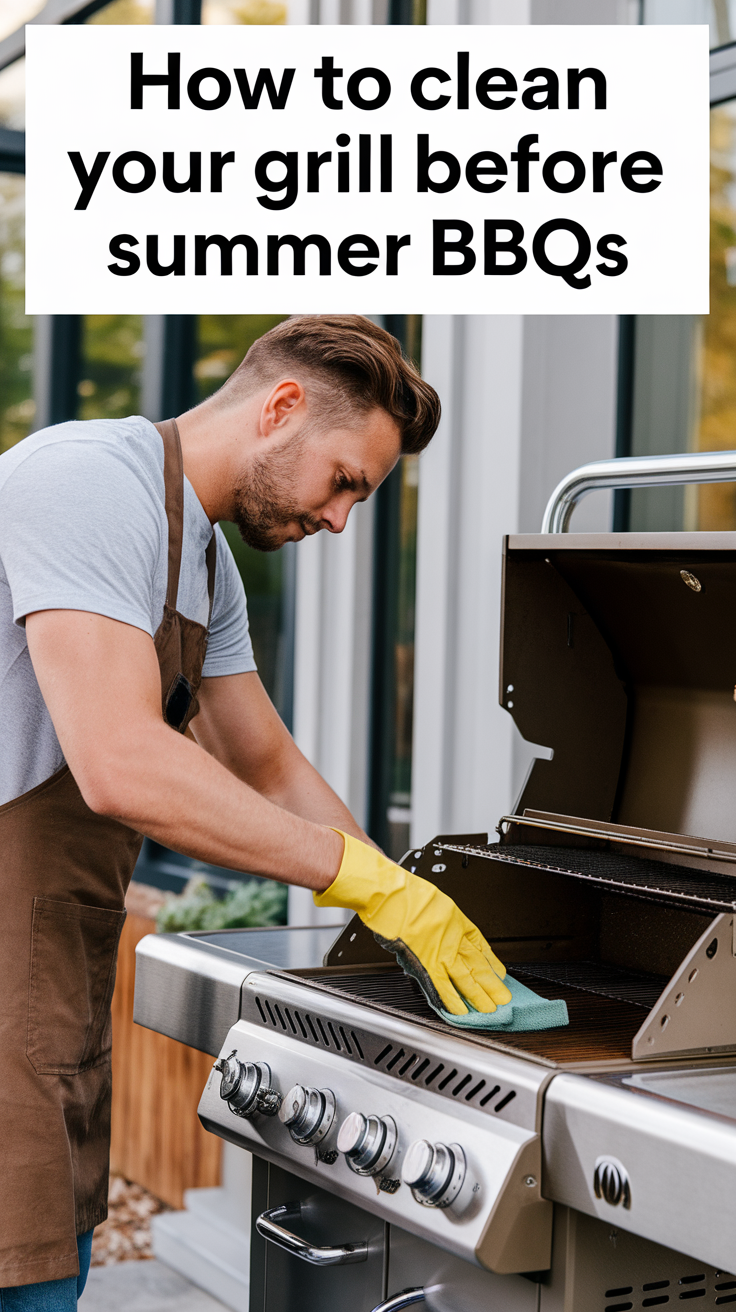
America holds Summer BBQ traditions with national importance, though your barbecue grill might need first-time seasonal preparation before usage. The Hearth Patio & Barbecue Association has revealed that barbecues and smokers are owned by 70% of Americans nationwide. Many grill owners who plan to prepare burgers and brisket on their barbecues neglect the crucial step of conducting a deep cleaning. Why does it matter? A neglected grill not only poses health risks, but it also destroys the flavor of your food and produces an unpleasant appearance.
The guidelines presented in this piece detail step-by-step methods for grill maintenance in 2025 using basic equipment available at common retail locations as well as home items.
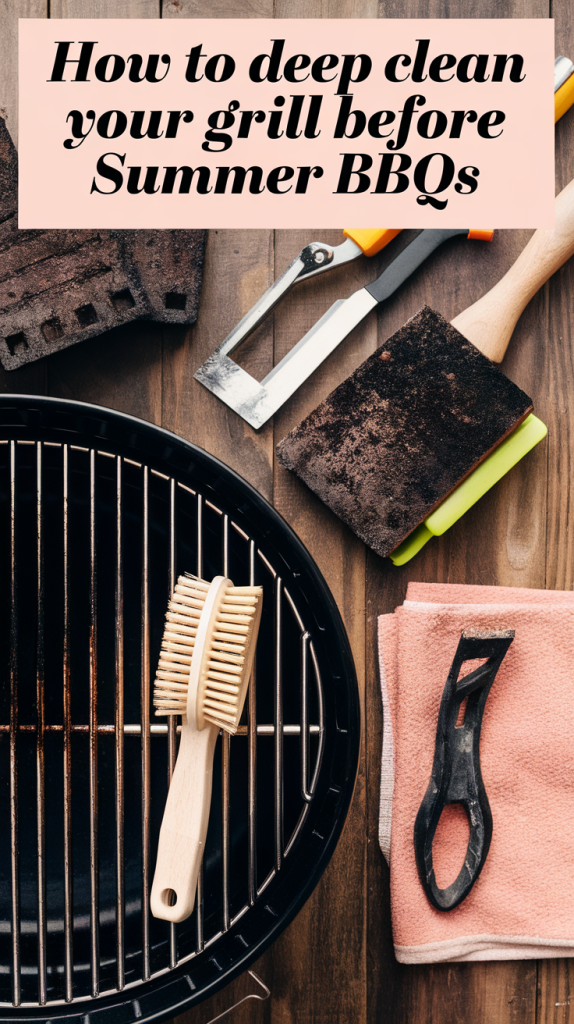
Who Will Benefit from This Guide?
- Backyard BBQ hosts preparing for summer parties
- New grill owners who want to start strong
- Anyone who hasn’t cleaned their grill since last Labor Day
Let’s dive into why cleaning your grill matters more than ever.
Why Deep Cleaning Your Grill Is a Must in 2025
It’s tempting to think a quick brush-off will do. But built-up grease, food particles, and carbon deposits not only affect the taste of your food—they can also cause flare-ups and lead to equipment breakdown.
Here’s why deep cleaning isn’t optional:
- Health risks: Old food and grease can harbor bacteria like salmonella.
- Fire hazards: Grease buildup is a common cause of backyard fires.
- Flavor quality: Smoky aroma? Great. Is there any evidence of rancid grease or smoke? The amount is not significant.
- Grill longevity: Rust and corrosion are preventable with regular upkeep.
The National Fire Protection Association links grills to nearly 10,000 house fires annually in the U.S. Deep cleaning once per season can significantly reduce your risk.
What You’ll Need to Clean Your Grill Like a Pro
Before you start scrubbing, gather these supplies:
Basic Cleaning Kit:
- Wire brush with stainless steel bristles
- Putty knife or grill scraper
- Dish soap or degreaser
- Baking soda + white vinegar
- Sponge or scouring pad
- Bucket of warm water
- Microfiber cloths
- Grill-safe gloves
Optional (But Helpful):
- Drill brush attachment
- Grill cleaning spray (check if it’s food-safe)
- Stainless steel polish (for external surfaces)
| Product | Natural? | Safe for Gas Grills | Price |
|---|---|---|---|
| Baking Soda & Vinegar | ✅ | ✅ | Low |
| Grill Cleaning Spray | ❌ | ✅ | Medium |
| Lemon & Salt | ✅ | ❌ | Low |
Do you have your tools? Great—now let’s move on to the good stuff.
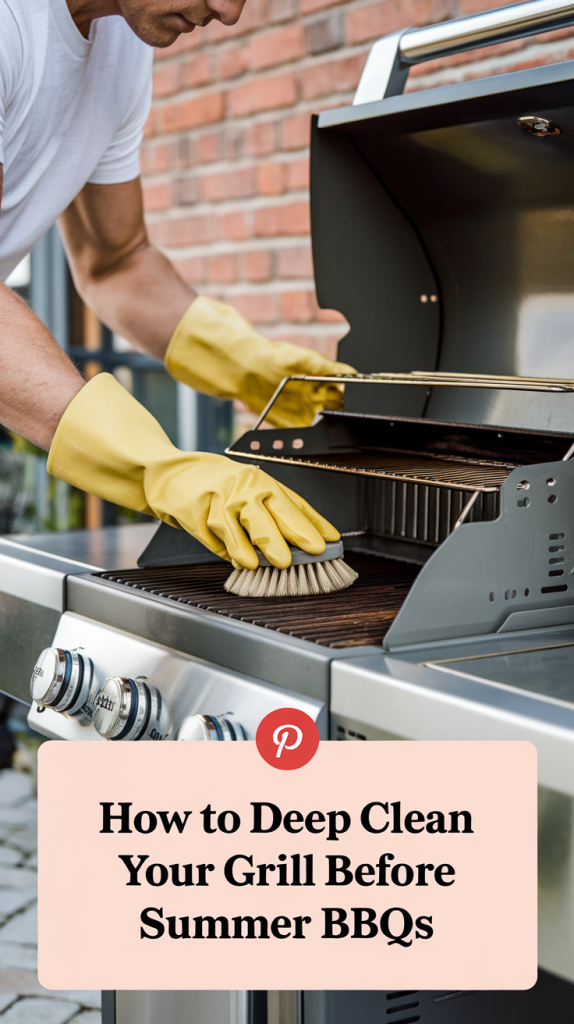
Step-by-Step Guide to Deep Cleaning Your Grill
Disconnect and Cool Down
Always make sure your grill is completely cool before you start. If it’s a gas grill, disconnect the propane tank.
Remove and Soak the Grates
- Take out the grates and soak them in warm soapy water or a baking soda and vinegar mix for 30 minutes.
- This technique helps loosen burnt-on food and carbon layers.
Clean the Burner Tubes and Flame Tamers (Gas Grills)
- Use a soft brush to gently clean out any clogged burner holes.
- Wipe down flame tamers with warm, soapy water.
Scrape the Inside of the Grill
- Use a putty knife or grill scraper to remove grease and debris from the inner walls and lid.
- Please keep in mind the drip pan—this area is often the dirtiest.
Clean the Exterior
- Wipe down the outer surfaces using warm water and dish soap.
- For stainless steel grills, follow up with a polish to restore shine.
Pro Tip: Avoid using abrasive pads on painted or coated surfaces—they can cause scratches or rust spots.
Step 6: Rinse and Reassemble
- Rinse all parts with clean water and dry with a microfiber cloth.
- Reassemble the grill and check for proper reattachment of all parts.
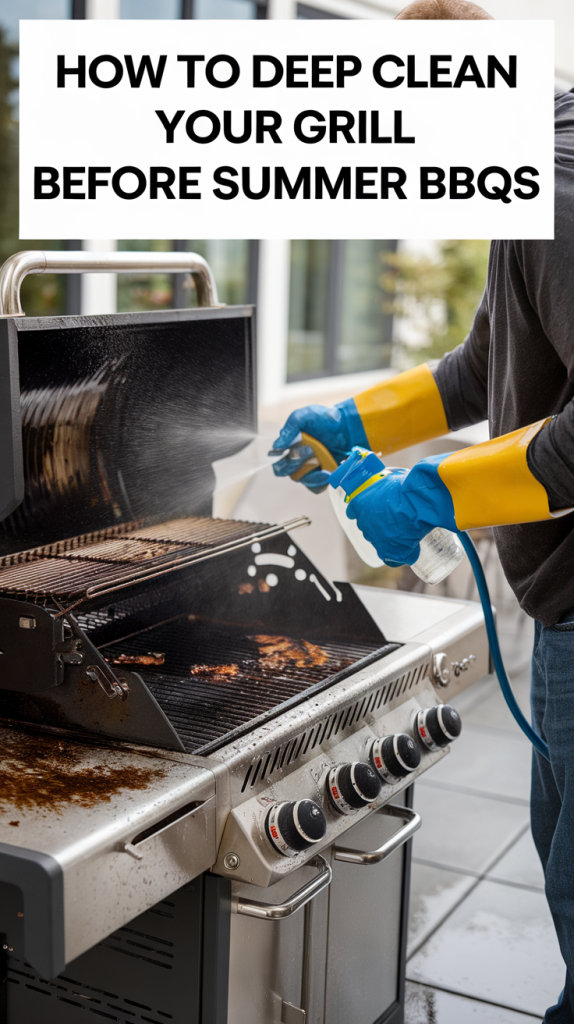
How to Maintain a Clean Grill Throughout the Season
Cleaning doesn’t stop after deep cleaning. Do you want your grill to last for years? Here’s how to maintain your grill after each use:
- Preheat and brush the grates before and after each use.
- Empty and wipe the drip pan weekly.
- Please conduct a quick check for gas leaks on a monthly basis.
- Cover your grill when not in use.
These small habits add up. A grill that’s maintained regularly requires less elbow grease down the line.
Common Mistakes to Avoid When Cleaning Your Grill
Even seasoned BBQ pros get it wrong occasionally. Watch out for these common errors:
- Avoid using wire brushes that shed bristles, as they can stick to grates and end up in your food.
- Cleaning hot surfaces: This method is dangerous and ineffective—always let things cool.
- Neglecting hidden parts: Drip trays and lid interiors matter just as much as grates.
“You wouldn’t cook in a dirty pan—why grill on a dirty grate?”
Special Considerations for Different Grill Types
Charcoal Grills
- Ash must be fully removed after each use.
- Grease can collect in the bottom and cause rust—keep it dry.
Gas Grills
- Inspect the hose for cracks or leaks each season.
- Check burners and ignition systems monthly.
Pellet Grills
- Vacuum out ash and dust after every 2-3 uses.
- Wipe out the burn pot and hopper regularly.
| Grill Type | Key Cleaning Step | Frequency |
| Charcoal | Empty ash pan | After each use |
| Gas | Clean burners | Monthly |
| Pellet | Vacuum hopper | Every 2-3 uses |
Final Thoughts: Ready to Grill with Confidence?
This article presents your ultimate step-by-step method to clean your grill before barbecuing begins. There is no reason to allow grime to ruin your barbecue experience. You will achieve a clean and safe grill by investing in proper cleaning tools along with spending some time organized with proper maintenance practices.
